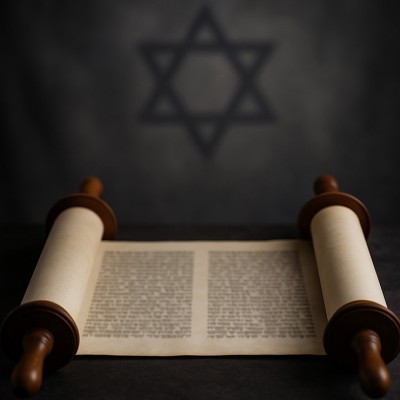
“And you shall observe and do them, for they are your wisdom and your understanding in the eyes of the nations.”
(Devarim 4:6)
Rashi explains this verse: “By this you will be regarded as wise and understanding in the eyes of the nations.” Later, in Devarim 4:9, the Torah warns, “Only take heed to yourself, and diligently guard your soul, lest you forget the things…” On this, Rashi comments: “Then, if you don’t forget them and faithfully practice them, you will be considered wise and understanding—but if you distort them out of forgetfulness, you will be viewed as a fool (‘shoteh’).”
But a fundamental question arises: Since the nations of the world do not observe the Torah and have no concept of what it is, why would they see a Jew who does not observe it as a fool? Shouldn’t he be viewed as “normal,” just like them?
Rav Chaim Shmuelevitz zt”l, the great Rosh Yeshivah, answered with a striking analogy.
There are four fundamental levels in creation: domem (inanimate), tzome’ach (vegetative), chai (animate), and medaber (speaking/human)—each one higher than the last. Consider a flower in bloom, radiant with color and fragrance. When it loses its life force, it rots and decays. A stone, by contrast, remains intact for thousands of years. Why doesn’t the dead flower at least revert to the level of a stone?
Similarly, the human being is elevated above animals by intellect and speech. If a person loses his intellect, shouldn’t he at least remain on the level of a simple creature—still able to function instinctively? Yet in truth, we often see that when a person loses their da’as (conscious awareness), they fall into a state of total dependence, unable even to function like an animal.
The answer is profound: the defining quality of each level is not just an external trait—it is the very essence of that being. When that defining life-force is lost, the entire structure collapses. The flower doesn’t downgrade—it disintegrates.
This, said Rav Chaim, is how we must understand the Jewish people. We often imagine that we are like everyone else—with “Judaism” as an added identity. But in truth, the very essence and existence of Am Yisrael is the Torah. It is not something “on top of” being human. It is our life-source. Without it, we don’t just become “like other nations”—we lose the fundamental foundation that makes us a nation at all.
As Rav Saadia Gaon wrote, “Ein umaseinu umah ela b’Toratah”—“Our nation is not a nation except through its Torah.” That is why even the nations of the world recognize a Torah-abandoning Jew as a fool. Because we are a people whose entire meaning is bound to the Torah. Without it, we are not merely “ordinary”—we are lost.
This truth has been painfully demonstrated in recent history.
Albert Einstein—perhaps the most brilliant mind of the modern era—was a Jew detached from Torah. One of his greatest contributions to science laid the groundwork for the atomic bomb. Though he did not build the bomb himself, he later admitted deep regret for having opened the door to that level of destruction—an existential threat to the world that persists today.
J. Robert Oppenheimer, another Jew unaffiliated with Torah observance, took that knowledge and led the Manhattan Project to completion. The weapon created ended wars—but also killed hundreds of thousands and changed warfare forever.
And what of Karl Marx? Leon Trotsky? These Jews advanced ideologies that led to the deaths of tens of millions. Even today, in places like Hollywood, Jewish creativity and genius have been misdirected to corrupt morals, degrade values, and promote spiritual emptiness.
Instead of using their talents for chesed and kedushah, these individuals used their G-d-given gifts to bring spiritual and physical destruction. They were brilliant—but dangerously foolish. As Rashi so powerfully put it a thousand years ago: Shotim.
Their downfall was not in lacking intelligence—it was in lacking Torah. For a Jew, that is the very definition of existence. The Torah is not a part of us—it is us. Without it, the entire structure collapses.
Let us never forget: “Ki heim chayeinu v’orech yameinu”—for they [the Torah and mitzvos] are our life and the length of our days.
Rabbi Leeor Dahan, a graduate of Yeshiva Chofetz Chaim/RSA, is a noted scholar and teacher, well-versed in halachah. He currently leads Kehilat Avodat Hashem in Hillcrest, Queens, inspiring his congregation to delve into Torah study and embrace its eternal teachings.
Jews & Torah – An Existential Connection
Typography
- Smaller Small Medium Big Bigger
- Default Helvetica Segoe Georgia Times
- Reading Mode




